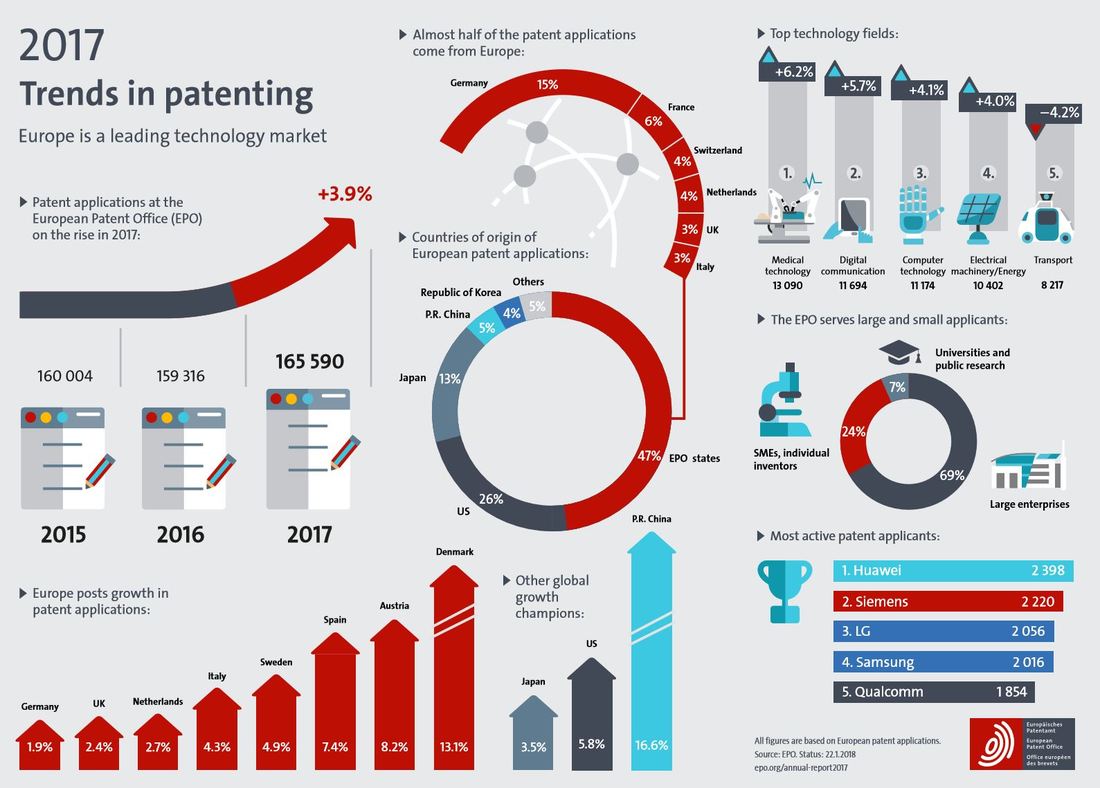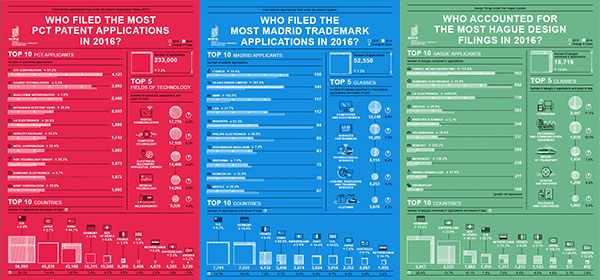There is a chicken-egg-interdependency of business- and Intellectual Property strategy. This explains, why IP-strategy discussions without a deep understanding of business makes no sense. Seeking the core of business transformation in digital technology adoption only is not enough. The Intellectual Property Strategy will likely decide who takes control on the whole value chain and the underlying business model - who sits in the front seat and who must find a place on the backbench. Even though that patents represent a part of innovation only, they still indicate where the energy is in a respective geography, industry, or even company. The annual reports of patent offices provide some interesting perspectives worth exploring. The factory of the future will have only two employees, a man, and a dog. The man will be there to feed the dog. The dog will be there to keep the man from touching the equipment.
With the separation of Software from Hardware arriving in automotive industry, a whole set of new proprietary software with respective End User Licensing Agreements (EULA) will be coming down the road. It seems we soon have to familiarize ourselves with the fact that we can´t own a car entirely anymore - primarily not because we all move into the share economy model but driven by the fact that the car manufacturer will no longer own or control the required software IP. Automotive Industry for years pushed towards external innovation and external labor to reduce capital lockup - Software IP will be a game changer for car vendors who want to keep control on their core business. This idea is intriguing us because manufacturers need to go beyond selling physical car assets and must discover us drivers as customers - welcome to next generation Customer Relationship Management and the essence of customer intimacy for an old economy! However, transformation in software industry is going deep as well. What has worked in a traditional productized Sell-To model needs to get complemented by Sell-With and Sell-Through approaches to meet the new customer expectations. Software IP gets embedded in products, cloud-based services become essential part of other products or your current customer may want to join forces with you on innovation. Either way, it´s time to revise value propositions, to reskill the salesforce and to tune the commercial backbone towards new ways of monetization. Digital Transformation, Industry 4.0 and a solid IP Strategy belong together and form the common ground for your business in near future, so let´s prepare for it now. Good news, the cheese may already have moved on but the opportunity maybe bigger than ever and the driver seat is not decided yet!
3 Comments
Account Planning means planning for results. In a number driven world of sales, the decomposition of an aspired revenue goal is psychologically the first step to accepting the challenge. While SMART goals and respective objectives may well fit on a small napkin, they by no means are the plan. I would even argue that it is the wrong end to start with - relevant account plans are starting with the customer. In recent years, Business-to-Business sales has evolved in various dimensions, redefining how we engage with customers:
Account Planning is a reflection on the evolution in sales but even more, so it is a yardstick on the sophistication of your teams work - what a great coaching opportunity or moment to personally benefit the customer relationship in form of executive sponsorship. Imagine the business potential of getting the perception right by moving away from a necessary evil and abandoning the disrespect which a napkin implies.
For example, the authors are not asking why “CRM self-reported data maybe inherently flawed” but propose the approach “to analyze the digital exhaust of calendar and email metadata” instead. We can be rest assured that it will be 10 AM again and that time will tell how many of their top performing sellers are willing to accept the proposed micro management approach to optimization. It´s clear that maintaining business data in CRM is not the first thing a seller will fall in love with but why should metadata from calendar, mail or any other app maybe in better shape or even be more insightful than explicit business information? - Data quality is about discipline but sustainability only can be achieved where relevant business conversation drives respective demand for it. Times of the Lone Wolves in sales are over and contemporary solution selling approaches mandate efficient teamwork. The better you coach this in every interaction with your sellers, the more you inherently drive demand for systematic alignment. This will make the case for efficient Time Management and, ultimately it shows the difference between a metering tool and CRM as a sales productivity engine. Selling into complex enterprises is a time intense endeavor, so let´s maximize selling time for your teams, e.g. balancing all internal work with the amount of time they need to spend properly serving customers. Time Management also remains a key enabling factor on seller level, requiring to systematically coach and develop every individual – probably starting with yourself! If you want to learn more on how to practically approach Time Management, Keith Rosen recently published his new book: “Own Your Day!”. It´s worth reading and opens eyes on why your calendar may yet not be the ideal starting point to conclude optimization from. Either way, Coaching or Inspection - you decide but be aware: No one expects the Spanish Inquisition! 😉
|
Andreas Engelis an experienced business leader working 25+ year in high-tech industry - leading, growing and transforming high-performance sales organizations, balancing short term results with long term strategy to drive new business growth. CATEGORIES
All
ARCHIVES
April 2020
|







